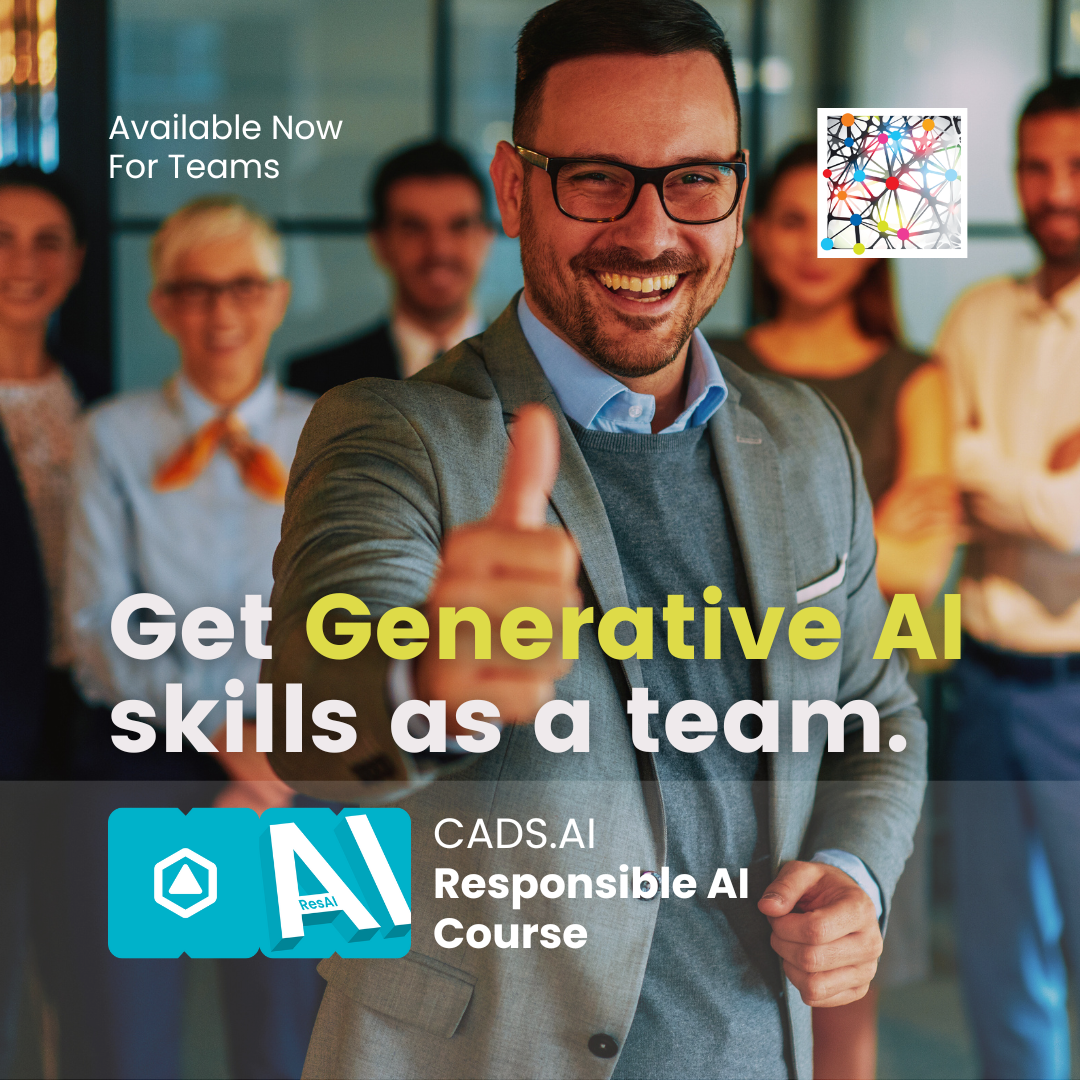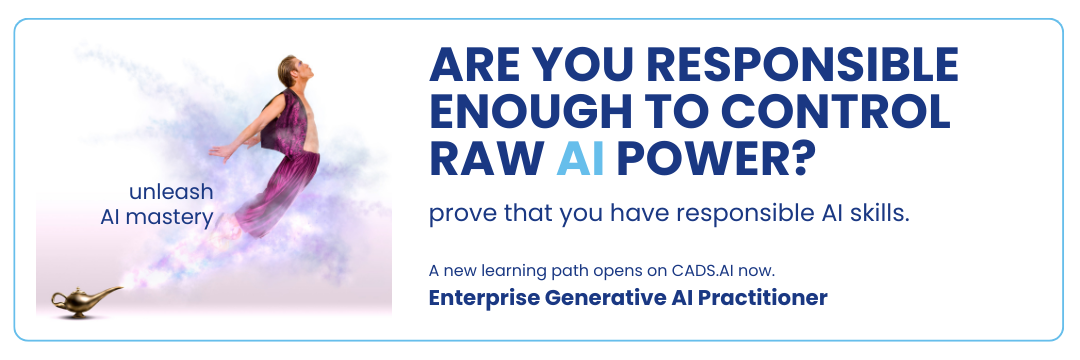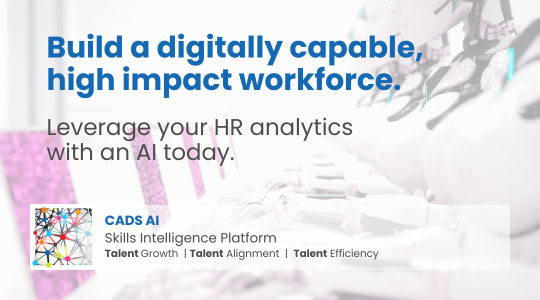The Power of Data Literacy: Shaping the Future of Work

Introduction:
In an era where data is generated at an unprecedented pace, the ability to harness and comprehend its potential has become a critical skill. As industries undergo rapid transformations driven by technological advancements, data literacy has emerged as an essential tool for individuals to thrive in the future of work. In this article, we will explore the significance of data literacy, its implications for the workforce, and the profound impact it has on shaping the future of work.
The Rise of Data:
Data has become the lifeblood of businesses, governments, and organizations worldwide. The proliferation of digital technologies, IoT devices, and the exponential growth of online platforms have created an immense wealth of data. However, this vast amount of information is meaningless unless we can derive insights and make informed decisions from it. This is where data literacy comes into play.
What is Data Literacy?
Data literacy refers to the ability to read, analyze, and effectively interpret data. It involves understanding how data is collected, processed, and presented, as well as the skills to draw meaningful conclusions and communicate insights. Data literacy encompasses not only technical proficiency but also critical thinking, problem-solving, and ethical considerations in dealing with data.
The Importance of Data Literacy in the Future of Work:
Increased employability: According to the World Economic Forum, data analysts and scientists are among the top emerging jobs in the coming years, with a projected 97.2% growth rate by 2025. The U.S. Bureau of Labor Statistics predicts that employment of data analysts will grow by 31% from 2020 to 2030, much faster than the average for all occupations. Individuals with data literacy skills are in high demand as organizations increasingly rely on data-driven decision-making. They possess the ability to extract valuable insights from complex datasets, enabling them to make strategic recommendations, optimize processes, and drive innovation.

Empowering decision-making: A study by McKinsey Global Institute found that data-driven organizations are 23 times more likely to acquire customers, six times more likely to retain customers, and 19 times more likely to be profitable. Data literacy empowers individuals to distinguish between relevant and irrelevant data, enabling them to make informed decisions. This skill becomes even more crucial as we face an overwhelming influx of data, requiring us to filter, analyze, and synthesize information effectively.
Fostering innovation and adaptability: The Data Literacy Project reports that only 21% of the global workforce feels confident in their data literacy skills. However, research conducted by the MIT Center for Digital Business revealed that companies that use data-driven decision-making achieve 4% higher productivity rates and 6% higher profits. Data literacy nurtures a mindset of curiosity, experimentation, and continuous learning. It encourages individuals to explore new avenues, uncover patterns, and identify trends that can lead to innovative solutions and opportunities. In an ever-evolving work landscape, adaptability is essential, and data literacy equips individuals with the agility needed to embrace change.

Ethical considerations: The Pew Research Center found that 64% of Americans are concerned about the way companies collect and use their personal data. The General Data Protection Regulation (GDPR) implemented by the European Union highlights the need for organizations to prioritize data ethics and protect individual privacy. Data literacy not only involves the technical aspects of working with data but also emphasizes the importance of ethical considerations. Individuals proficient in data literacy understand the implications of data collection, privacy concerns, biases, and the ethical use of data. This knowledge helps build trust among stakeholders and promotes responsible data practices.
Preparing for the Future:
To thrive in the future of work, individuals must proactively develop data literacy skills. Here are a few steps to consider:

Education and training: According to the Data Literacy Project, 61% of CEOs believe that the lack of data literacy is hindering their organization's ability to innovate. Educational institutions, governments, and organizations need to prioritize data literacy in their curriculum and training programs. This includes providing foundational knowledge, analytical skills, and real-world application opportunities.
Continuous learning: The Data Literacy Project estimated that the global economy could experience a potential $5 trillion increase in GDP if organizations invest in data literacy programs. Individuals must embrace a lifelong learning mindset and actively seek opportunities to enhance their skills. Online courses, workshops, and industry certifications can be valuable resources to stay up-to-date with the latest tools and techniques.
Are You Data Illiterate? Don't Be
CADS.AI helps organizations & Individuals achieve data literacy
learn moreCollaboration and cross-functional teams: Data literacy should not be confined to data scientists and analysts alone. Organizations should foster a culture of collaboration, encouraging individuals from diverse backgrounds to work together. Cross-functional teams can leverage collective intelligence and ensure data-driven decision-making becomes a shared responsibility.
Embracing emerging technologies: Research by the World Economic Forum indicates that improving digital skills, including data literacy, could create 1.7 million new jobs by 2025. As technologies like artificial intelligence and machine learning continue to evolve, individuals with data literacy skills can leverage these tools to augment their decision-making capabilities. Familiarity with emerging technologies will become increasingly important for the workforce of the future.
Conclusion:
Data literacy is not just a desirable skill; it has become an imperative one in the rapidly evolving landscape of the future of work. Those who embrace data literacy will be at the forefront of innovation, decision-making, and success. By empowering individuals with the ability to harness the power of data responsibly, we can create a workforce that is ready to embrace the challenges and opportunities of the data-driven future. The time to prioritize data literacy is now, and by doing so, we can shape a future workforce that thrives in the digital age.
About CADS.AI
CADS.AI is a cloud-based Skills Intelligence Platform used by companies to develop their employee skills across all divisions, departments, and levels to achieve optimum business performance and transform into a data-driven organization. CADS.AI is focused towards increasing data literacy as the most critical skill set for modern business. CADS.AI provides value by offering data-driven learning pathways that connect HR systems with learning. Supporting individuals and organizations in developing and deploying effective skill sets for businesses. The company has been featured in well-respected publications and news portals such as CNN, Daily Express, TechWire Asia, TheEdge, MalaysiaKini, and Digital News Asia. For more information, please visit https://cads.ai.
#CADSAI #skillsintelligence #dataliteracy #AI #HR





